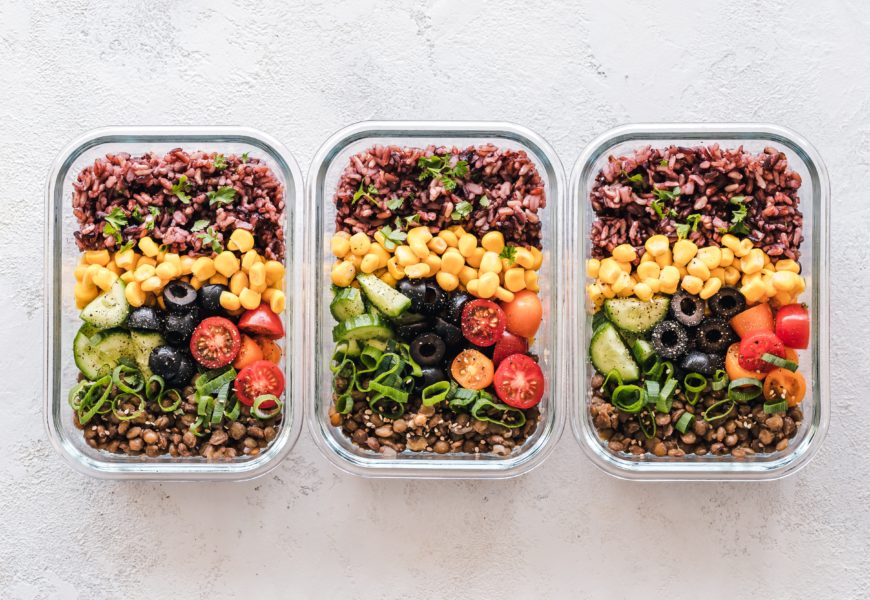When I think about food, it’s both something enigmatic and very simple. It manifests cross-cultural connections, tells stories of history and power, but is also as simple as roasting a vegetable to bring out its flavor profile. The same goes for when I think of “clean eating,” a term popularized in the last decade (give or take a few years) to promote eating whole and unprocessed foods.
Clean eating is less of a fad to me (sorry, Gwyneth Paltrow), but rather a lifestyle stemming from an awareness of who makes your food and where it comes from. But as simple as it may seem, where does the money come from to foster this way of life, how do I simply abandon the massive cultural dent that processed foods have made on Western society, and how am I supposed to create time and effort for this while being a college student?
I (virtually) sat down with Connecticut College and Goodwin-Niering Center alumna Lily Kunin and asked her some questions about her wellness journey. Kunin has written a cookbook called Good Clean Food, and expanded her food blog “Clean Food Dirty City” into a wellness store called Clean Market, which has its second location opening this spring in New York City.
Having a healthy relationship with food is something a lot of college students struggle with. I read that you first realized you had Celiac’s in college. Did you find that it was difficult to eat mindfully at school, especially going gluten-free (before it was a popular thing to do)?
I found out I had Celiac’s my sophomore year in college –– it was revolutionary, not only because I went from nearly bedridden to nearly migraine-free in a matter of days, but also because it was the first time I truly made the connection between what I was putting in my body and how it made me feel. While I didn’t label it “mindful eating,” in hindsight this is exactly what I started to become aware of around this time. It was not about restriction or beating myself up in any way, but rather about having compassion for my body and fueling it to feel its best.
Eating in awareness of the environment is becoming more and more ubiquitous. What did you learn about the relationship between food and the environment when you were a student in Goodwin-Niering?
We had an entire semester dedicated to studying food and the environment. It was eye opening for me at the time, and 10 years later has become more and more mainstream and in the general consciousness that what we eat has a major impact on the environment. It greatly impacted my thoughts around where I source my food, particularly animal proteins and fish. After becoming a health coach and studying functional medicine, it became clear that what’s good for the environment is also great for your health (a mostly plant based diet).
Did you work any internships or jobs during or right after college that particularly fueled your passion for clean eating?
My jobs right after college had absolutely nothing to do with food (I worked in education for several years). I was passionate about plant-based, gluten-free cooking at home, and started my Instagram, @cleanfooddirtycity, as a way to share easy, delicious recipes. Eventually, this evolved into me contributing recipes to some well-known websites, and to a book deal to write my cookbook, Good Clean Food, which came out in 2017.
I understand that Clean Market, your wellness store, is opening its second location soon. What is the focus of that brand, and what should I come in expecting to see?
I like to say that Clean Market is everything you need to live better, in a single space. This translates to an incredible organic cafe, an apothecary market with everything from nontoxic skincare to smart supplements, and innovative services including IV drips, cryotherapy, and infrared saunas. You can truly create your own journey when you step into the store — whether you are coming to pick up a healthy lunch on the go or making it more of a modern spa day. My goal is for Clean Market to be an oasis amongst the hustle and bustle of the city, and for you to walk out feeling better than when you walked in.
Finally, I think it’s difficult sometimes to eat mindfully in college because of time, expense, and dining hall options. What do you recommend for us students to use food as medicine and fuel I’m feeling our best?
Start small. Healthy snacks are a great place to start — some of my go-tos in college (and to this day!) were crudites and hummus, seed crackers and hummus, apples and almond butter, and fresh fruit, mostly (if not all) available in the dining hall. Plenty of water, warm water with lemon, and herbal teas are a great way to start the day and sip on throughout. For meals that fuel, a good rule of thumb is to add protein, healthy fats, and greens to the plate to keep you full and energized. We are all different so listen to your body and how it feels when you eat certain foods. Also, I was on the Dining Services Committee at Conn — don’t be afraid to get involved and advocate for what you want to see in the dining hall! •










